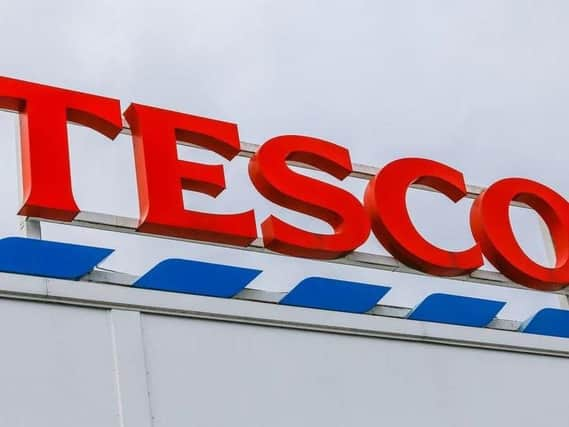UPDATED: New shoppers boost Tesco's sales


The UK’s biggest grocer increased its quarterly sales by 1.3 per cent, attracting a further 228,000 shoppers through its doors to expand its share of the market to 28.2 per cent - its first year-on-year market share gain since 2011, Kantar Worldpanel said.
Tesco’s sales growth was ahead of the overall market, where sales increased by 0.8 per cent on last year.
Advertisement
Hide AdAdvertisement
Hide AdBy contrast, Yorkshire’s two biggest supermarket chains, Asda and Morrisons, have seen their combined market share hit an 11-year low, according to Kantar’s grocery market share figures for the 12 weeks to October 9. Their combined market share of 26.0 per cent was the lowest since Morrisons was in the process of buying Safeway more than a decade ago.
Bradford-based Morrisons continued to feel the effects of a smaller store portfolio with sales down by 3.0 per cent over the quarter. The re-launch of its ‘The Best’ range has had a positive impact on its premium own label sales, which increased by 6 per cent. Morrisons’ market share remained at 10.4 per cent.
At Leeds-based Asda sales were down by 5.2 per cent – its slowest rate of decline for four months – despite a premium own label sales increase of 8 per cent. Asda’s market share declined by one percentage point to 15.6 per cent. Fraser McKevitt, Kantar Worldpanel’s head of retail and consumer insight, told The Yorkshire Post that it had been a long, slow turnaround at Tesco.
He said there were signs that Morrisons was heading in the right direction under its CEO David Potts, and analysts were still waiting to see what Asda would do to arrest its decline.
Advertisement
Hide AdAdvertisement
Hide AdSainsbury’s sales fell by 0.4 per cent over the quarter, but its market share also grew by a percentage point to 16 per cent.
Mr McKevitt said: “Foods including ready meals and produce have been among the fastest growing areas at Tesco, helped by its ‘Farm Brands’ but also its standard own-label lines.
“While the threat of rising prices is on a lot of minds at the moment, we’ve seen the 27th consecutive period of grocery price deflation, albeit at a slower rate.
“The price of everyday groceries fell by 0.8 per cent compared with a year ago and in contrast to the minus 1.1 per cent reported last month, with deflation particularly noticeable among pork, crisps and poultry products.”
Advertisement
Hide AdAdvertisement
Hide AdAldi’s sales increased by 11.4 per cent, and at Lidl they grew by 8.4 per cent, taking their market share up to 6.2 per cent and 4.6 per cent respectively and maintaining the combined market share high of 10.8 per cent. Waitrose is still enjoying a sales uplift from its September half price event, with sales growing by 3.5 per cent and contributing to a market share increase of 0.2 percentage points to a total of 5.4 per cent. The Co-op’s sales are up by 3.1 per cent compared with a year ago, taking its market share up to 6.5 per cent.